If you’re not really into animal documentaries, that isn’t what this is. It’s not like Blue Planet, with scenes of baby whales suffocating on plastic and other heart wrenching scenes. It’s a factual roundup of the state of the Earth. It lists the impact that we as a species have had on our planet. And if you are someone who is not upset by the thought of distant species you will never see (and that therefore has no effect on you) going extinct then you REALLY need to watch this (or at least carry on reading). I get it, we all have other issues in our own lives that seem far more pressing and immediate!
Now, we’ve reached the next stage. We’ve destroyed so many of the natural ecosystems of the planet, that we’re starting to affect our own ability to continue to survive in the way we do now as a species.
That’s right. Thinking that the natural world does not affect us because we live in a city miles away from the rainforests is no longer valid. It’s where our food is grown, where diseases like Covid start, where our air and water is cleaned, it’s important for controlling the climate and where a lot of our resources come from. Everything is linked.
“We are not just losing nice things to look at, we’re losing critical parts to Earth’s systems”
Here’s the thing: these viruses come from animals. Animals have a whole load of viruses and diseases that we don’t normally come into contact with. Fact. The ones that end up transmitting it or carrying the virus are usually the small ones like bats, rodents etc. Normally these animals are kept under control by predators. But we’re increasingly killing off the larger mammals and birds so they proliferate. We are also moving further into natural lands, causing more and more contact with these animals. So there are more opportunities to ‘jump’ species.
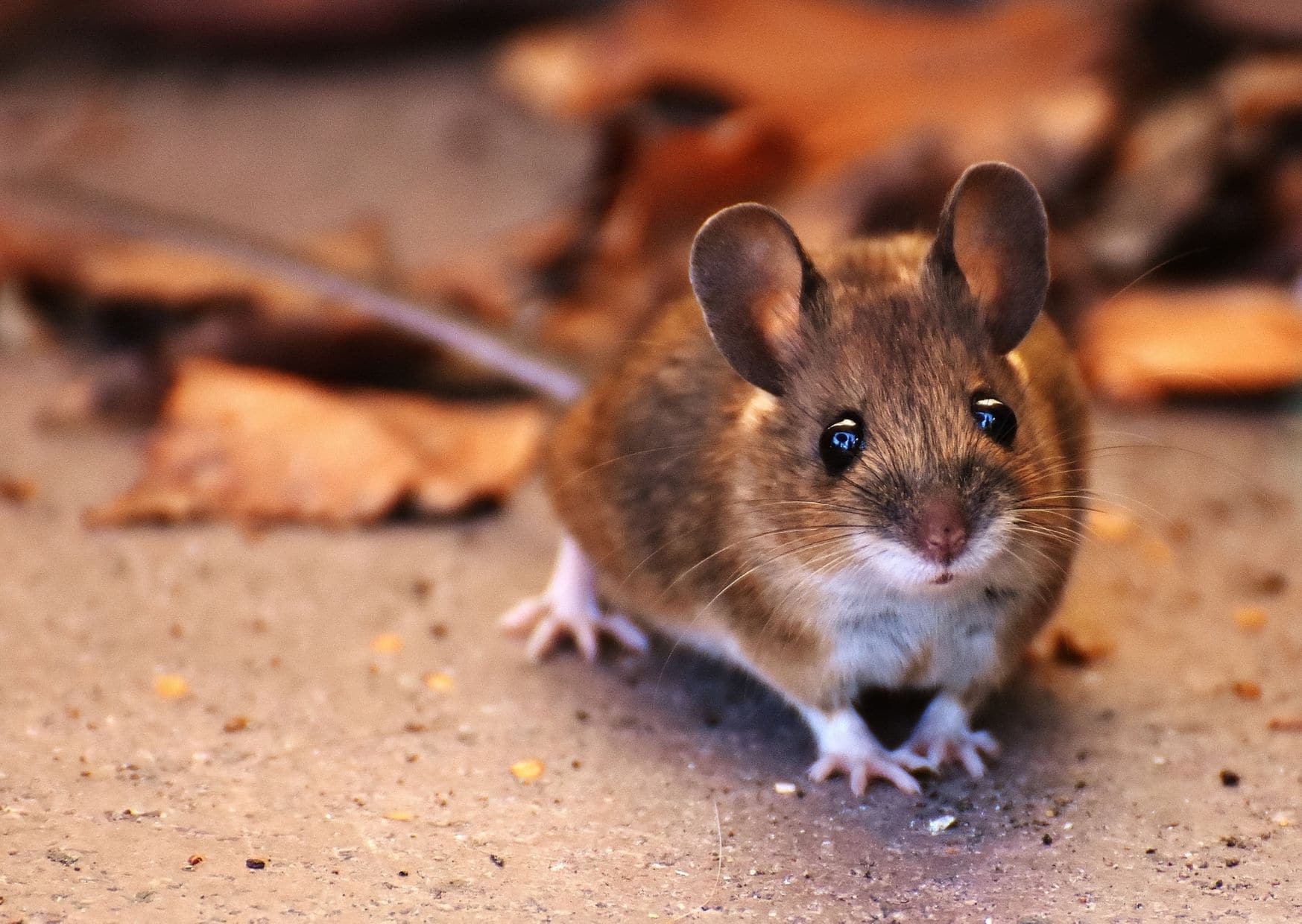
“Today, we are the asteroid”
Is this level of extinction natural?
Yes, extinction is natural, and yes, there have been massive mass extinction events before. But we should remember that these were the result of earth’s natural processes (except the meteorite!), and that the world after these events was a pretty horrific place. Yes, nature will always recover once that extinction force has gone, but it takes time on a scale we can hardly imagine, and the extinction pressure is not likely to lift if we as a species do not change.
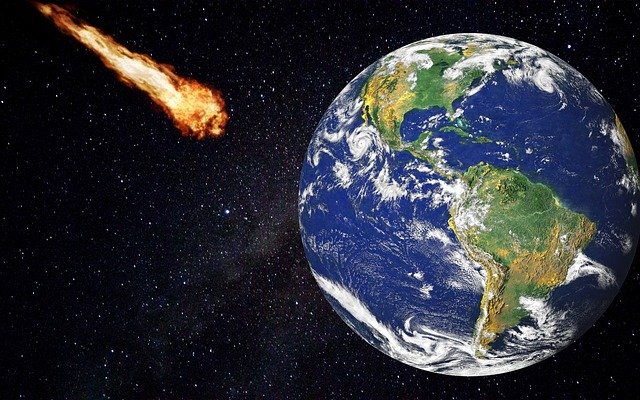
It’s also important to realise that often, these extinction events, whilst massively destructive in the amount of species removed (sometimes 75-90% of species!), usually affect a certain area. For example, when the ice caps formed, locking up the water and lowering sea levels, massively huge amounts of marine life went extinct. BUT on land, there were tremendous opportunities for new life to proliferate. That opportunity does not exist with the current situation.
ALL groups in the natural world are in decline. Let’s look at some of the stats from the documentary:
Since 1970 vertebrate animal populations (the ones we know like mammals, birds, reptiles and amphibians) have decreased by 60%!
Large mammals have been driven from 75% of their home ranges.
Since 1500, 570 plant and 700 animal species have gone extinct.
The extinction rate is now 100x faster than the natural evolutionary rate (outside of mass extinction events) and it’s increasing at an exponential rate.
25% of all plant species are threatened.
We have lost 90% of wetlands.
75% of land not covered by ice has been converted to feed or house us.
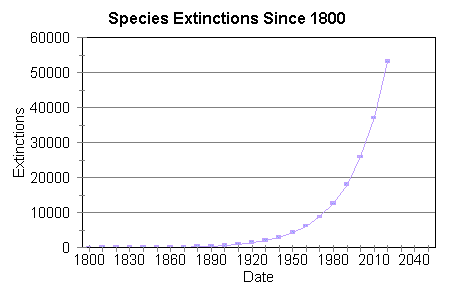
What should you be concerned about?
Loss of trees
As one of the biggest carbon sinks, trees around the world are important. If that carbon ends up in the atmosphere we get global warming. And if you think about it, trees and plants take in carbon dioxide and release oxygen. Which we need to breathe. We take in oxygen and give out carbon dioxide. What happens when there are not enough plants to keep the oxygen levels in the atmosphere high enough for us as humans to exist? (Ok so this will take a long time and is maybe slightly dramatic, but the point remains.)


Overfishing
We’ve cleared almost 95% of the common trawler fish from around the UK oceans, and 84% of the fish in the China seas. Other oceans are not faring much better. With few large adult fish to breed, populations cannot maintain this level of culling. Fish will no longer be on the menu… bye bye cod and chips at the seaside…
New emerging diseases
As discussed already, Covid is unlikely to be a one off if we keep this up…

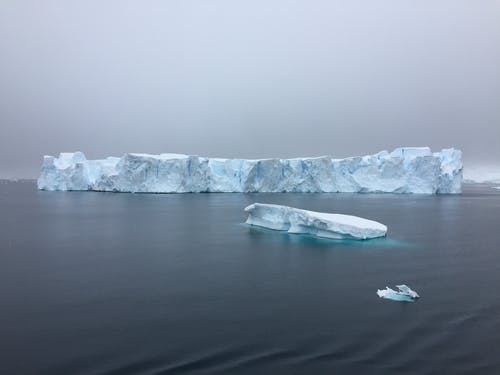
Ice caps
Yes this one’s an old story. But if they melt, the extra water in our seas will cause catastrophic change. It’ll cause a natural mass extinction in the oceans as the water salinity, temperatures and flows change, and the rise in sea levels will remove our access to much of our coastal land. That includes many of our major cities…
Global warming
This one has been hotly debated, but I think it is generally accepted by most now that the temperature is rising. I for one have no memories of summer temperatures ever reaching 30 degrees as a child. Now it’s not a rare event, it’s an expected thing and lasts for a week or more.
Maybe my memories are wrong, but the meteorologists data is scientific. We’re tracking at around 2 degrees higher than before the industrial revolution (around 1880). The 10 warmest years on record have all occurred since 1998, and 9 of the 10 have occurred since 2005.
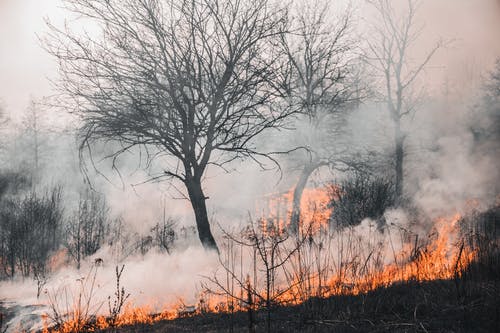
(There are many more effects, I just can’t go into them all here!)
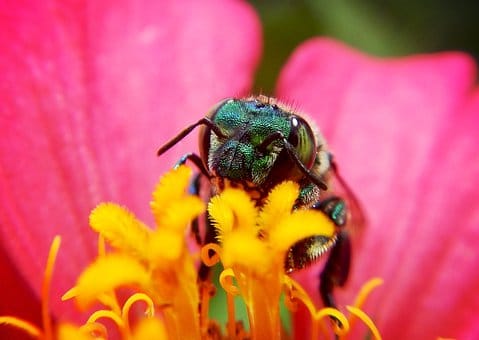
Loss of insects and microbes
Ok, so most of us are not fans of insects (or microbes and other small life). I expect if I say insect, you immediately think of a fly or a spider (which is not actually an insect by the way). If I say microbe you probably think of a disease causing bacteria or ‘germ’.
An estimated 10% of insects are at risk of extinction. Think back to 20 years ago, when if you drove anywhere at night your car windscreen got covered in bugs. I remember driving through France on family holidays and the front of the car was black with them! That simply doesn’t happen any more. So there are clearly less insects around.
Unfortunately, many of us don’t realise the essential roles that insects play in our world. Which is not surprising really as it’s not something widely told. Think of this though:
– 75% of the world’s food crops need to be pollinated by insects.
– Insects help break down the waste of the world. Without them the organic matter from leaf drop, or the stalks from crops, cannot be broken down to make plant food and keep our soils fertile.
– Microbes are even more vital to this process of breaking down matter and maintaining healthy soils.
Soil degredation
Who loves mud? Probably only our kids right? But soil is such an important part of our world. It’s the basis of almost all life as the nutrients in it are needed to grow any plant and to start off food chains and agriculture.
30% of our soils globally are estimated to have been degraded and show low levels of microbe biodiversity. These soils cannot support crops giving decent yields or natural life. In the Western world, we can hide this for a while by pumping in chemical fertilisers, but that won’t work forever. In the poorer nations, they do not have this option.

This means one of two things, we need to eat massively more fruits and vegetables to get the vitamins and minerals our bodies need to function properly, or we don’t get the vitamins and minerals we need and our bodies start to function poorly, resulting in more disease, fatigue, poor weight balance etc. We’ve definitely gone with option 2 at the moment judging by the increasing rates of non infectious disease…
Ok, this is getting depressing, and I’m sorry if I’m putting you in a sad mood for the rest of the day. It’s so tempting to just ignore this as it really is a miserable situation. Many times I have turned away as I didn’t want to think about it. But we can’t any more. We have to understand this and move on to the good stuff – doing something about it (trust me – it feels good 😊). Keep reading, it does get more hopeful I promise!
“It’s never been more critical for us to understand what is driving this crisis”
How are we causing this?

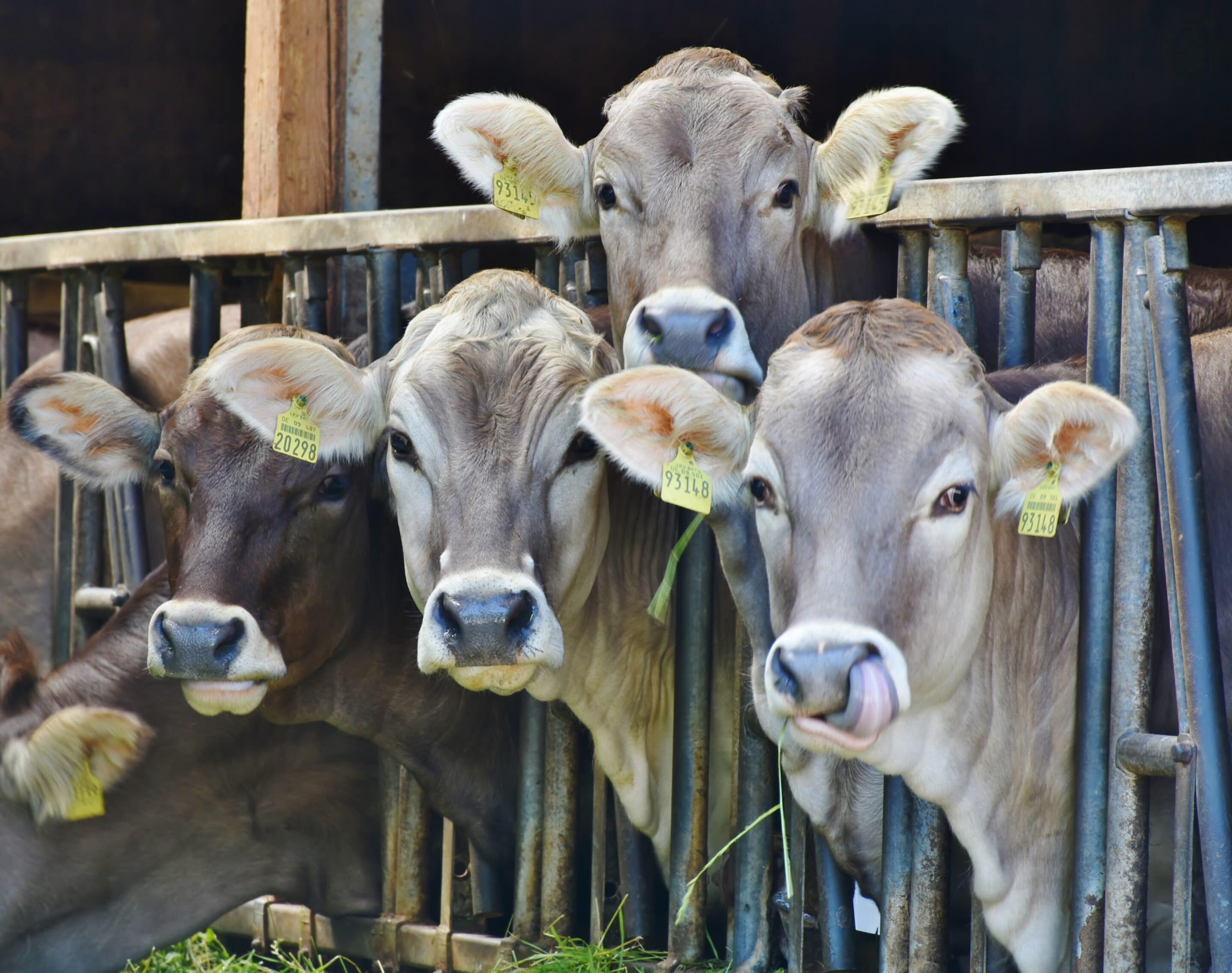
Are you reading this with a sinking heart still? My initial thoughts around all this are always ‘there’s no point, as most of this is out of my control’. But when I read it again with my optimistic, problem solving hat, there ARE areas I can impact. I may be one person out of millions, but I can do some small things to help out.
What can we do about it, as a species?
There are many things that need to change:
The global trade of wild animals must be ceased (as much to protect us from more virus outbreaks as anything else).
Reduce food waste and make better use of the land we have cleared to feed everyone (apparently 40% of the food grown is thrown away!).
Use the land we already have more efficiently and stop clearing more.
Farming needs to become less chemical intensive and work with nature to maintain and improve the quality of our soils so they can go on feeding us nutritious foods for generations to come.
Increase investment in green technologies which reduce our carbon output.
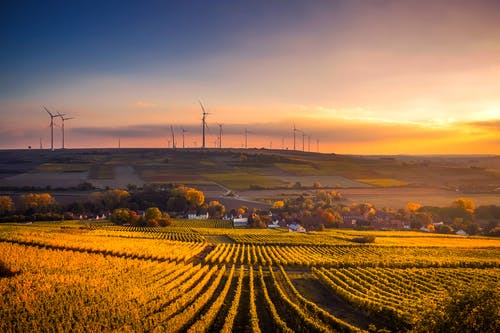
Help local communities to make money from the natural spaces and species around them. There are many successful examples across the world, so we know it can be done if someone decides to.
We need to all become less consumptive. Things don’t bring us happiness, even though the large corporations want us to believe otherwise.
Meat production, especially beef, uses up more space to produce a meal than grains, legumes, fruit and veg do. We need to eat less meat (not necessarily none at all in my opinion, but a lot less).
Use sustainable packaging and reduce plastic packaging as it pollutes the environment.

Global environmental laws must be set and enforced.
Governments must be held accountable to these green targets they set and do not achieve. We must be willing to make sacrifices to allow the governments to do this though. The reason they don’t prioritise these things is they feel they will be unpopular. Unfortunately, our politics has come down to a popularity contest.
We must put more pressure on the global corporations to do their bit for sustainability.
An excellent suggestion from the program – rather than paying everyone to sit at home and do nothing whilst their companies are closed and they are out of work, pay them to make things better. Fit insulation, plant trees, restore degraded land, retrofit buildings and homes so they are more energy efficient.
We need to stop thinking of nature as free. There’s a cost when we chop down an acre of forest. The end consumer needs to pay this cost.
Governments can use their power to control the goods that are allowed in the country. Unsustainably produced materials should be taxed more or not allowed.
And lots more! My brain hurts now…
What can YOU do?
A lot!
I’ve summarised the main points of the documentary in this post, whether you choose to watch it or not (you may not need to now haha), we need to stop burying our heads in the sand and accept that we caused this. It is our fault. There are very few of us that didn’t have any part to play. In most cases we had no idea what we were doing, but that’s why documentaries like this are important – we need to know!
Take ownership of the situation. We in the Western world are increasingly bad at this and always want to blame someone. Take this one yourself, take a moment to feel bad, then a deep breath and forgive yourself. What’s done is done. What matters now is what we do going forwards.
We can do something about this if we act now and together. Putting it off till next month is no longer ok. We are at the tipping point, and momentum is there, it’s slow but it’s building.
As we come out of this pandemic, there will be changes to the new normal. Help us tip the scales and make them environmentally positive ones!
“We have a moment where we can change our world and make it better”
As they say, it’s better to have lots of people being imperfect at sustainable living, than a couple of people doing it perfectly.
I’m lucky that I now have more time, that I’ve been able to make this my job! But I’ve been where most of you are now; working, time strapped, feeling depressed about the whole situation. Feeling guilty that you’re not doing anything, but with no idea how you can really make a difference with the little time you have.
Here’s what I say to that.
You can only do what you can do. So don’t beat yourself up about not being able to do everything, we really don’t need that extra stress right now and it helps nothing. But, don’t let that be an excuse to do nothing.
Here are some things you can do, that will take very little time to set up, and then require no extra time from you at all. These are the proper basics, but when you think about them, if we all (or most) could do this, think of the waste that would be reduced, or the energy saved!!
Take your own bags to the shops. We don’t need any new bags from shops, be they plastic or paper. Even recyclable or compostable bags should be avoided if possible as they still require energy to produce. Use your own existing, multiple use (preferably non plastic) bag. If you don’t have any, buy an organic hemp or cotton one, or one made from recycled materials.
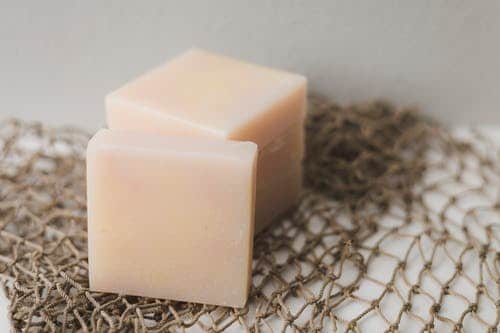
Consider buying gifts of experiences for people, not things (especially joke presents they’ll laugh at and then never use).
Buy veg and fruit out of packaging. Take your own bags to collect them in as you go around the shops.
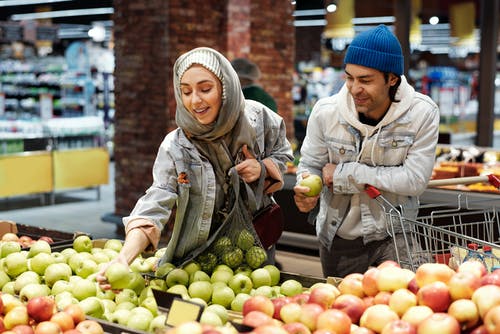
Reduce meat. Start by swapping 1 meal a week and stop buying beef mince. Pork is better. Or turkey. Or just use beans.
Switch the lights off when you’re not in the room.
Switch to energy reducing bulbs.
Switch to a 100% renewable energy provider. I use Bulb 🙂
People are waking up, we are not alone now in caring what happens to the world.
I for one do not want my grandchildren to think of me and my generation as the ones who destroyed the natural beauty of the world.
Sir David Attenborough closes the documentary well so I shall steal it…
“Together we can create a better future if we make the right decisions at this moment. What happens next is up to every one of us.”
If you’re looking to get started with this, come join my community on Facebook, where I’ll be sharing tips, motivation and my research to make it simple for you to make changes in your lifestyle, and in particular, to move to a more eco friendly way of eating.
I hope to see you in there – let’s change the world, one small step at a time 🙂
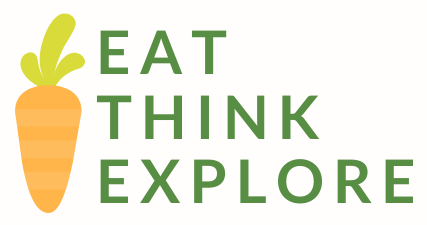
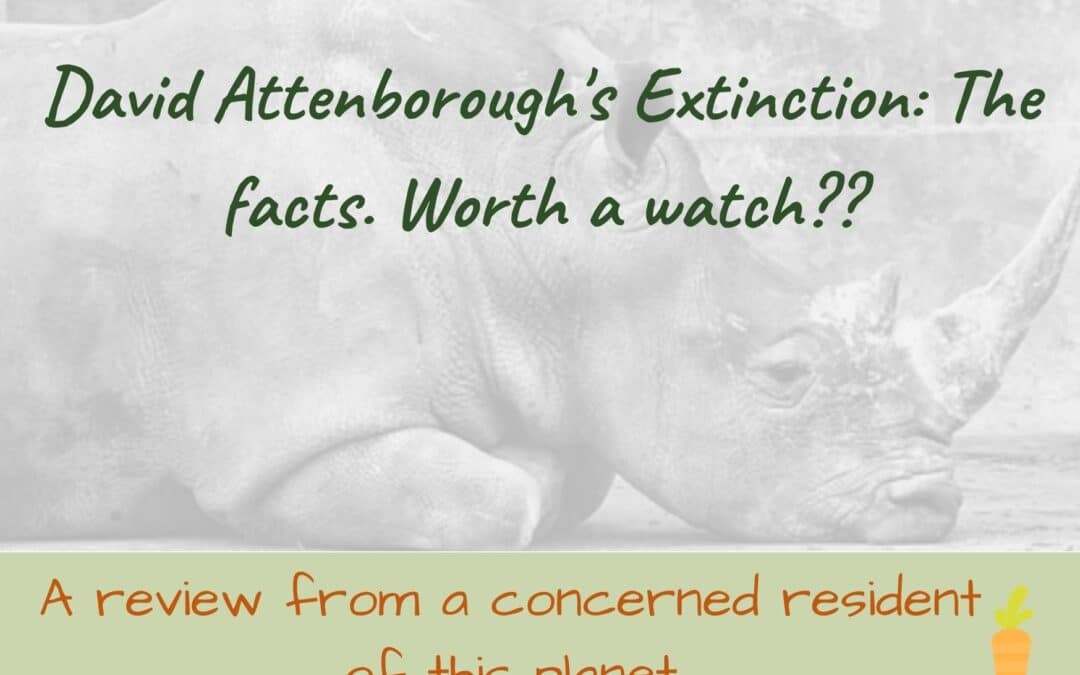
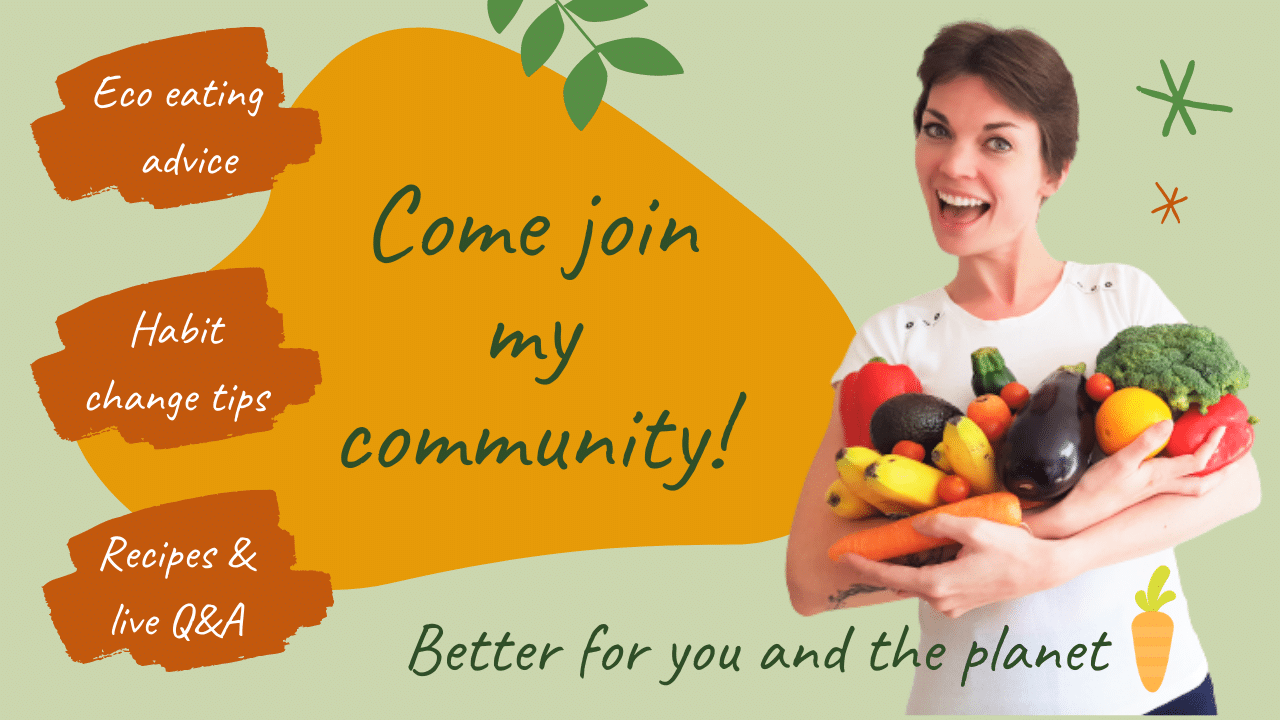
Loved this page about David Attenborough Extinction
Thannks Gaile 🙂 I loved how factual this one was, as opposed to the normal highly emotive ones.